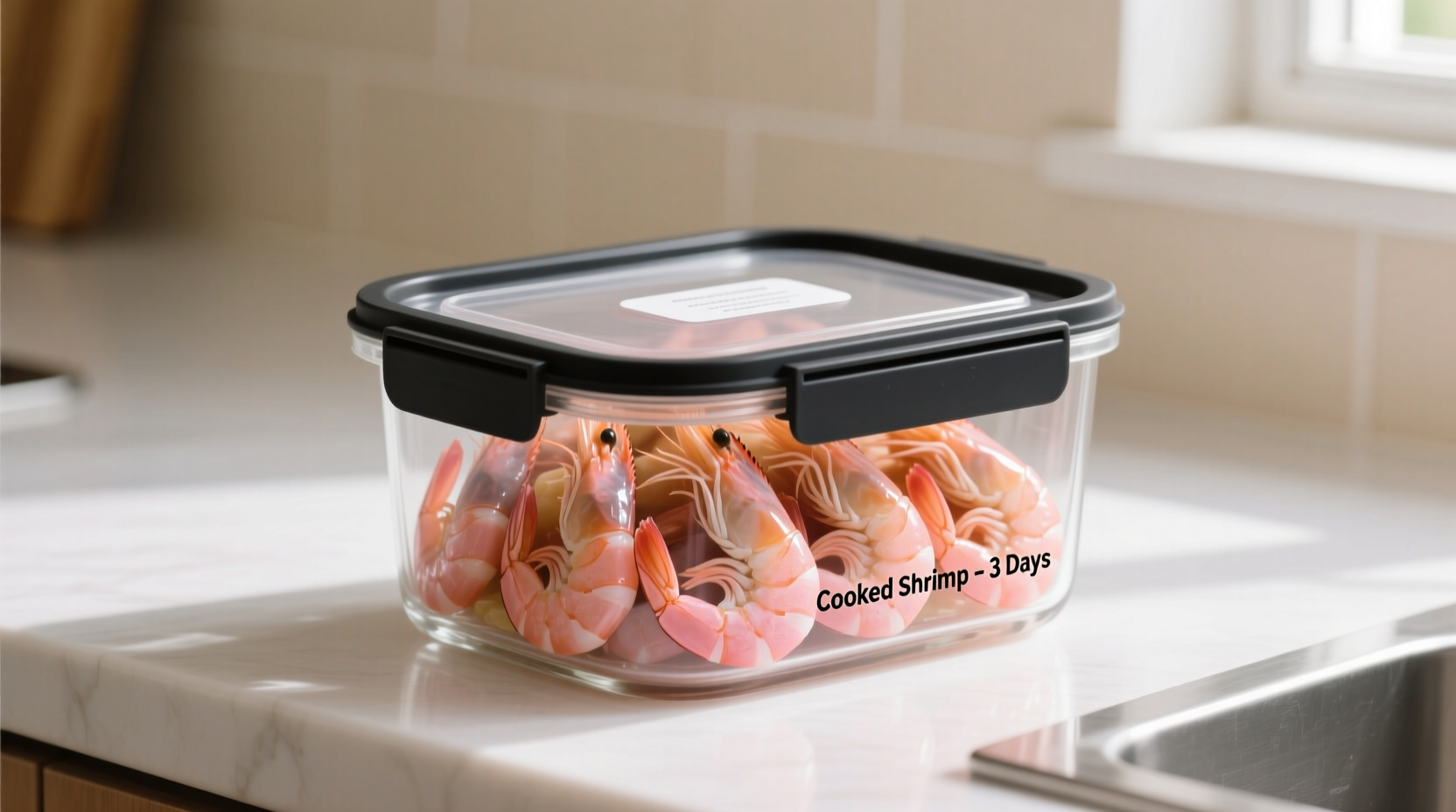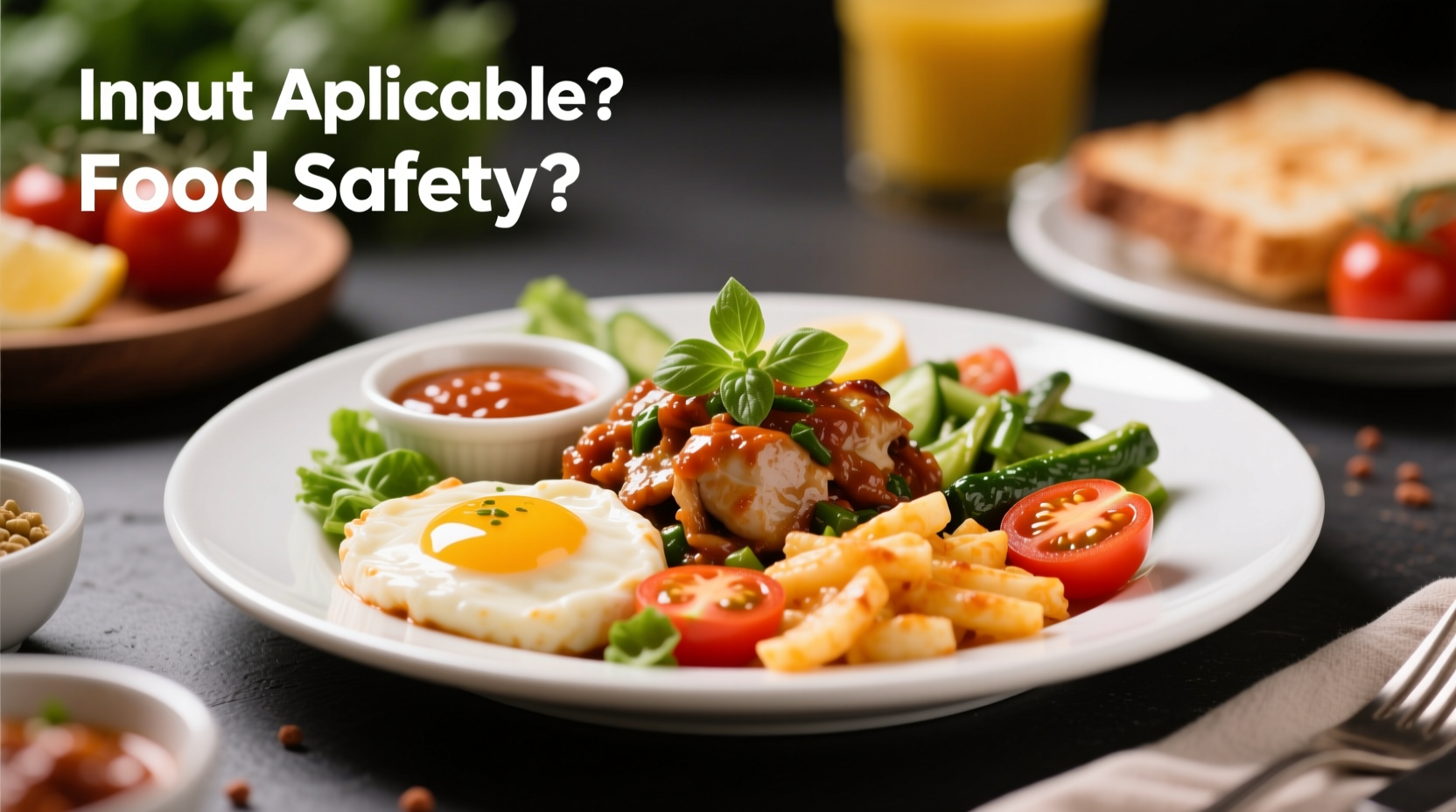Discover exactly how long your cooked shrimp stays fresh in the fridge, plus essential storage techniques that maximize freshness and prevent foodborne illness. Whether you've prepared a shrimp boil, grilled shrimp, or shrimp pasta, these science-backed guidelines ensure you enjoy your seafood safely.
Understanding Cooked Shrimp Refrigeration Timeframes
When stored correctly in airtight containers at or below 40°F (4°C), cooked shrimp maintains peak quality and safety for 3-4 days. This timeframe comes directly from the USDA Food Safety and Inspection Service, which establishes evidence-based recommendations for seafood storage.
Several critical factors influence whether your shrimp stays fresh for the full 4 days or spoils sooner:
- Cooling speed - Shrimp cooled within 2 hours of cooking maintains quality longer
- Storage container - Airtight containers prevent moisture loss and odor absorption
- Refrigerator temperature - Consistent 40°F (4°C) or lower is essential
- Initial shrimp quality - Freshly cooked shrimp from high-quality sources lasts longer
Optimal Storage Techniques for Maximum Freshness
Follow these professional kitchen-tested methods to extend your cooked shrimp's refrigerator life:
- Immediate cooling - Spread shrimp in a single layer on a baking sheet and refrigerate uncovered for 30-60 minutes before storing
- Proper container selection - Use glass or BPA-free plastic containers with tight-fitting lids
- Moisture management - Place a paper towel in the container to absorb excess moisture
- Strategic placement - Store in the coldest part of your refrigerator (usually the back, bottom shelf)
- Air exclusion - Remove as much air as possible from storage containers
| Storage Method | Temperature | Maximum Safe Duration | Quality Notes |
|---|---|---|---|
| Refrigerator (properly stored) | 40°F (4°C) or below | 3-4 days | Best quality within first 72 hours |
| Refrigerator (improper storage) | Inconsistent temperature | 1-2 days | Rapid quality deterioration |
| Freezer (airtight container) | 0°F (-18°C) | 3-6 months | Best quality within 3 months |
| Room temperature | Above 40°F (4°C) | 2 hours max | Discard after 2 hours for safety |
Recognizing Spoiled Cooked Shrimp: Safety First
Before consuming refrigerated cooked shrimp, perform these safety checks. When in doubt, throw it out—foodborne illness isn't worth the risk.
Visual indicators of spoilage:
- Discoloration (yellowing, grayish tint, or milky appearance)
- Visible mold growth (any fuzzy spots or unusual textures)
- Excessive liquid accumulation in container
Olfactory warning signs:
- Strong ammonia-like odor (distinct from normal seafood scent)
- Sour or acidic smell
- Generally unpleasant or "off" aroma
Tactile red flags:
- Slippery or slimy texture
- Unusually soft or mushy consistency
- Sticky surface when touched

Freezing Cooked Shrimp for Long-Term Storage
When you can't consume shrimp within 3-4 days, freezing preserves quality and safety:
- Preparation - Cool completely, then portion into meal-sized servings
- Packaging - Use freezer bags with air pressed out or vacuum-sealed containers
- Labeling - Mark date and contents clearly (shrimp + cooking date)
- Thawing - Transfer to refrigerator 24 hours before use; never thaw at room temperature
According to the FoodSafety.gov cold storage chart, properly frozen cooked shrimp maintains peak quality for 3-6 months. While safe indefinitely when frozen, texture and flavor degrade over time.
Special Considerations for Different Shrimp Dishes
Cooked shrimp incorporated into other dishes has varying shelf lives based on ingredients:
- Shrimp pasta or rice dishes - 3-4 days (limited by the quickest spoiling ingredient)
- Shrimp salads with mayo - 2-3 days (mayo shortens shelf life)
- Shrimp in tomato-based sauces - 4 days (acidity extends freshness)
- Breaded or fried shrimp - 2-3 days (breading absorbs moisture faster)
When storing mixed dishes, always follow the shortest recommended timeframe among the ingredients. The FDA Food Code emphasizes that composite dishes are limited by their most perishable component.
Food Safety Best Practices for Leftover Shrimp
Implement these professional kitchen habits to maximize safety:
- Refrigerate within 2 hours of cooking (1 hour if room temperature exceeds 90°F/32°C)
- Store in shallow containers no deeper than 2 inches for rapid cooling
- Reheat to internal temperature of 165°F (74°C) before consuming
- Never refreeze thawed cooked shrimp
- Label containers with cooking date using waterproof marker
Remember that these guidelines apply specifically to properly cooked shrimp. Undercooked shrimp carries additional safety risks and requires different handling protocols.
Frequently Asked Questions
Can I eat cooked shrimp after 5 days in the refrigerator?
No, cooked shrimp should not be consumed after 5 days in the refrigerator. The USDA recommends discarding cooked seafood after 3-4 days to prevent foodborne illness. Even if it appears normal, harmful bacteria may have multiplied to dangerous levels.
How can I tell if cooked shrimp has gone bad if it has no smell?
Spoiled cooked shrimp may sometimes lack a strong odor but still be unsafe. Check for visual signs like discoloration (yellow or gray tones), slimy texture, or milky liquid. When in doubt about cooked shrimp safety, it's always safest to discard it rather than risk food poisoning.
Does reheating cooked shrimp kill all bacteria?
Reheating cooked shrimp to 165°F (74°C) kills most bacteria, but cannot eliminate heat-stable toxins produced by certain bacteria during spoilage. If shrimp has been stored beyond recommended timeframes, reheating won't make it safe to eat. Always follow proper storage time limits rather than relying on reheating for safety.
Can I freeze cooked shrimp twice?
No, you should never refreeze cooked shrimp after it has been thawed. Each freeze-thaw cycle degrades quality and increases food safety risks. Plan portions carefully before freezing, and only thaw what you intend to eat immediately. The USDA Food Safety guidelines strictly prohibit refreezing previously frozen cooked seafood.











 浙公网安备
33010002000092号
浙公网安备
33010002000092号 浙B2-20120091-4
浙B2-20120091-4